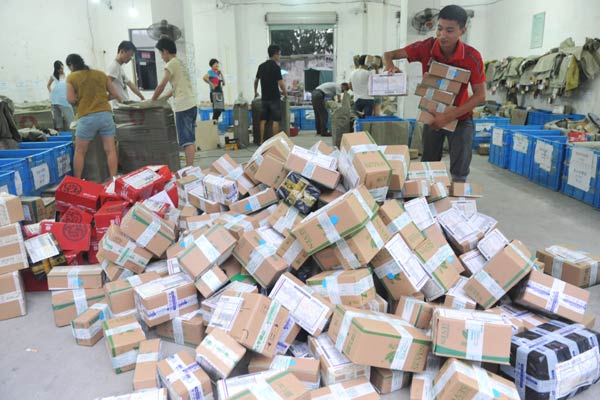Too much parcel packaging a pressing problem
(China Daily) Updated: 2016-04-01 08:03
 |
|
Workers at a delivery service sort parcels in Hangzhou, Zhejiang province. China is set to further open its express delivery market to foreign companies. [Hu Jianhuan/China Daily] |
STATISTICS SHOW THAT a total of 20.65 billion parcels were delivered in China last year, up 48 percent from 2014, leading to considerable packing material waste that poses a threat to the environment. Changjiang Daily commented on Thursday:
China's express delivery sector has grown steadily despite the economic downturn. The country is expected to handle 50 billion express parcels annually by 2020, according to Ma Junsheng, head of the State Post Bureau.
The annual waste of packaging, whether plastic or paper, has reached more than a million tons. To curb this serious delivery-related pollution requires all parties concerned-express companies, customers, online business owners, and post service authorities-to pitch in to make a difference.
Delivery service providers and online shop owners, for starters, should package their parcels reasonably and refrain from over-packaging the items to be delivered. They should also use more recyclable and degradable materials.
As for Chinese online shoppers, they should also have better awareness of packaging waste and not expect their purchases to come with too much packaging unless they are fragile and need extra protection during delivery. Besides, they need to keep in mind their responsibility to sort their waste packaging for recycling, in accordance with the rules on waste classification, or sell it to waste-recycling stations, where such routine garbage can be made useful again.

I’ve lived in China for quite a considerable time including my graduate school years, travelled and worked in a few cities and still choose my destination taking into consideration the density of smog or PM2.5 particulate matter in the region.











